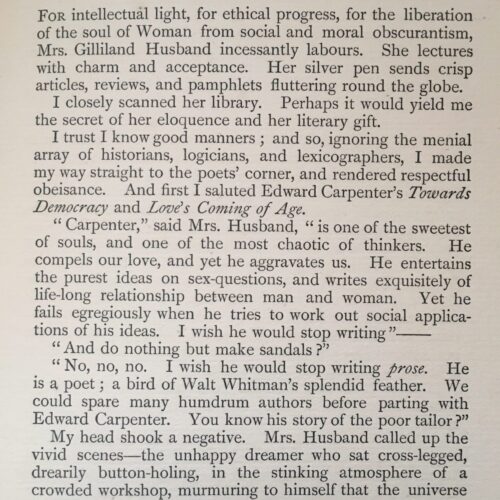

The attainment of the greatest possible amount of social happiness I take to be the noblest of human aims; the highest within the range of our faculties; and, being within that range, worthy of belief, hope and endeavor – the highest endeavor of rational beings.
Mary Gilliland, ‘The Evolution of Character and its Relationship to the Commonweal’ (1887)
Mary Gilliland Husband was an early and active part of the Ethical movement; a driving force in the London Ethical Society, and a prolific lecturer and writer on ethical subjects. She contributed regularly to the International Journal of Ethics, was Secretary of the London School of Ethics and Social Philosophy, and organiser of Hampstead Ethical Institute’s Sunday school. In all of this, she was motivated by the desire for a more rational, compassionate world, playing a leading role in building and strengthening the early organised humanist movement.
Mary Sophia Gilliland was born in County Derry in 1854, the daughter of Samuel Gilliland, a miller and bread and biscuit manufacturer, and Frances Gilliland (née Knox). The family owned Brook Hall, Derry, which Samuel Gilliland had purchased two years before his daughter’s birth. She married Thomas Fair Husband (1862–1921), a civil servant, in Hampstead in 1895. They had one daughter, Maureen, born 1898.
Prior to, and after, her marriage, Mary Gilliland was an energetic force for the spread and enactment of humanist values, not least within the burgeoning ethical societies. She was on the executive committee for the formation of, and subsequently Secretary to, the London School of Ethics and Social Philosophy, founded by members of the Union of Ethical Societies (now Humanists UK) in 1897 to increase access to education for working people. An active organiser in the London Ethical Society (the UK’s first), she was noted for her efforts in the varied social aspects of the society’s work, including the young people’s guild, which organised social and instructional opportunities for youth in London’s East End. In a similar vein, she was a vibrant figure in the secular Sunday school of the Hampstead Ethical Institute from its formation in 1904.
Gilliland Husband was also a regular contributor to journals and periodicals, including the International Journal of Ethics, very much a product of the Ethical movement. ‘Her silver pen’, wrote F.J. Gould, sent ‘crisp articles, reviews, and pamphlets fluttering round the globe.’ Writing on philosophical, literary, and ethical matters, Gilliland Husband consistently defended the concept of living a moral life without reference to theology, and discussed the role of the individual in society. In an 1887 article, she wrote:
Let us enter into relation with others as widely as possible, let us encourage co-operation of every kind, so that we may kindle our fellow-feeling and have occasions of common sorrow and joy; and let us help personally.
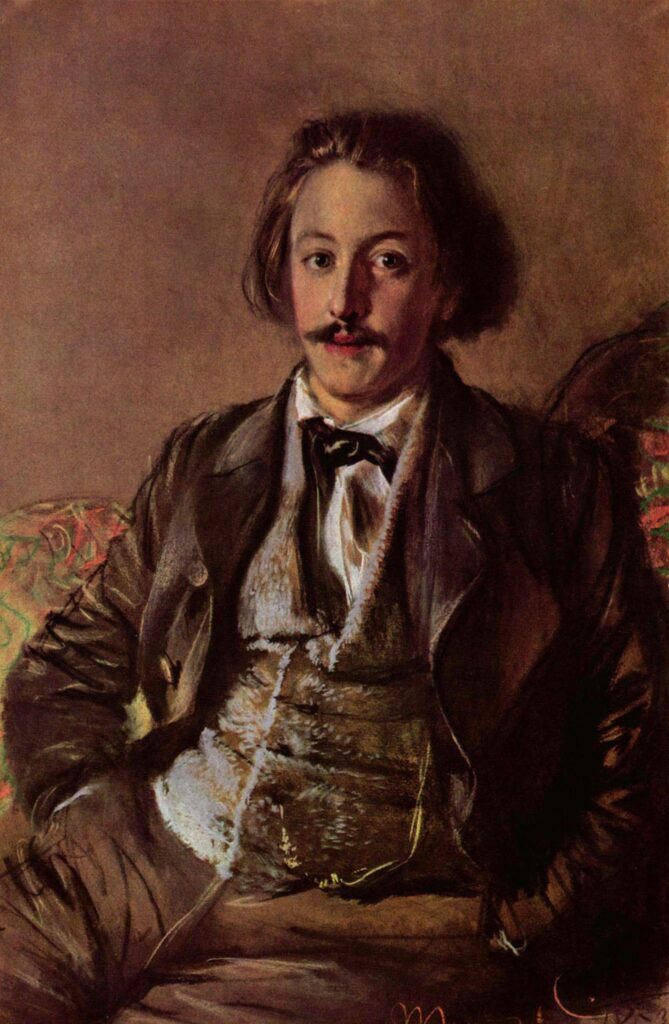
In common with a number of others in the early Ethical movement, she was involved with the Women’s Liberal Association, lecturing at meetings around the country. She was also a persuasive writer on the rights of women, decrying the subservient role assigned to her sex, a role sanctified in part by biblical doctrine. In 1894’s ‘Women in the Community and Family’, she used a character in a story by German author Paul Heyse to underline the notion of woman as a ‘durchgangspunkt’ (passage point or gateway) for humanity, in which her ‘whole value was that through her instrumentality a whole-man might arise’. Acknowledging the widely held Victorian belief in the innate goodness and selflessness of women, she went on:
But the need for the exclusive devotion of women to this one form of service has passed away, The necessity for the sacrifice of all her other faculties in order to secure the furtherance of her mere bodily fruitfulness no longer exists… The needs of the community and the best possible contribution which the individual or class can make to the common life must be ever the measure and standard of woman’s service, of her rights, and of her duties.
For Gilliland Husband, as for her Ethical movement colleagues like Elizabeth Swann and Zona Vallance, these rights and roles included participation in work, government, and suffrage. Expressing a humanist view of social equality and community duty, she argued that ‘nothing can harm the womanhood of woman that extends her good citizenship’.
Mary Gilliland Husband died in Berkshire on 3 March 1929, and was cremated at Golders Green Crematorium.
Idealism… means not only intellectual satisfaction, but moral and spiritual refreshment and strength. It professes that in the understanding of the every-day facts and relations of life it finds the assurance of ultimate Reason and Goodness.
Mary Gilliland-Husband
in Chats with Pioneers of Modern Thought, F. J. Gould
Like a number of other prominent women in the early organised humanist movement, Mary Gilliland Husband has been little remembered, in spite of her tireless writing, lecturing, and organising among the ethical societies. A lover of literature and philosophy, Gilliland Husband believed in the value of these to a culturally rich and rational society. Her feminism and humanism were closely linked, and informed by wide reading, including in history and ethics. She epitomised many of the efforts and interests of the humanist movement taking shape in the late 19th and early 20th centuries, and was very much a founding figure of Humanists UK.
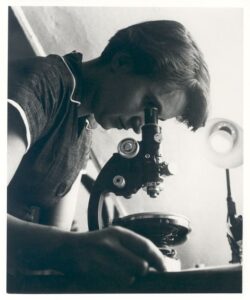
I agree that faith is essential to success in life (success of any sort) but I do not accept your […]
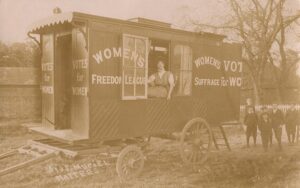
Dare to be free. Slogan of the Women’s Freedom League The Women’s Freedom League (WFL) was a militant suffrage organisation, […]
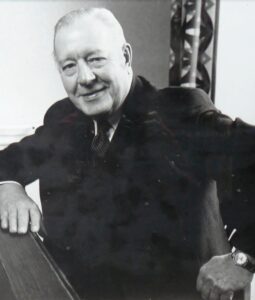
Without this mutual trust and dependability amongst people who differ radically, there cannot be political and religious freedom. H.J. Blackham […]
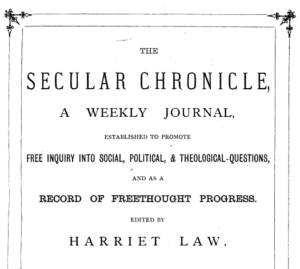
This article appeared in The Secular Chronicle (Vol. V, No. 1), 2 January 1876. It marked the first issue edited […]